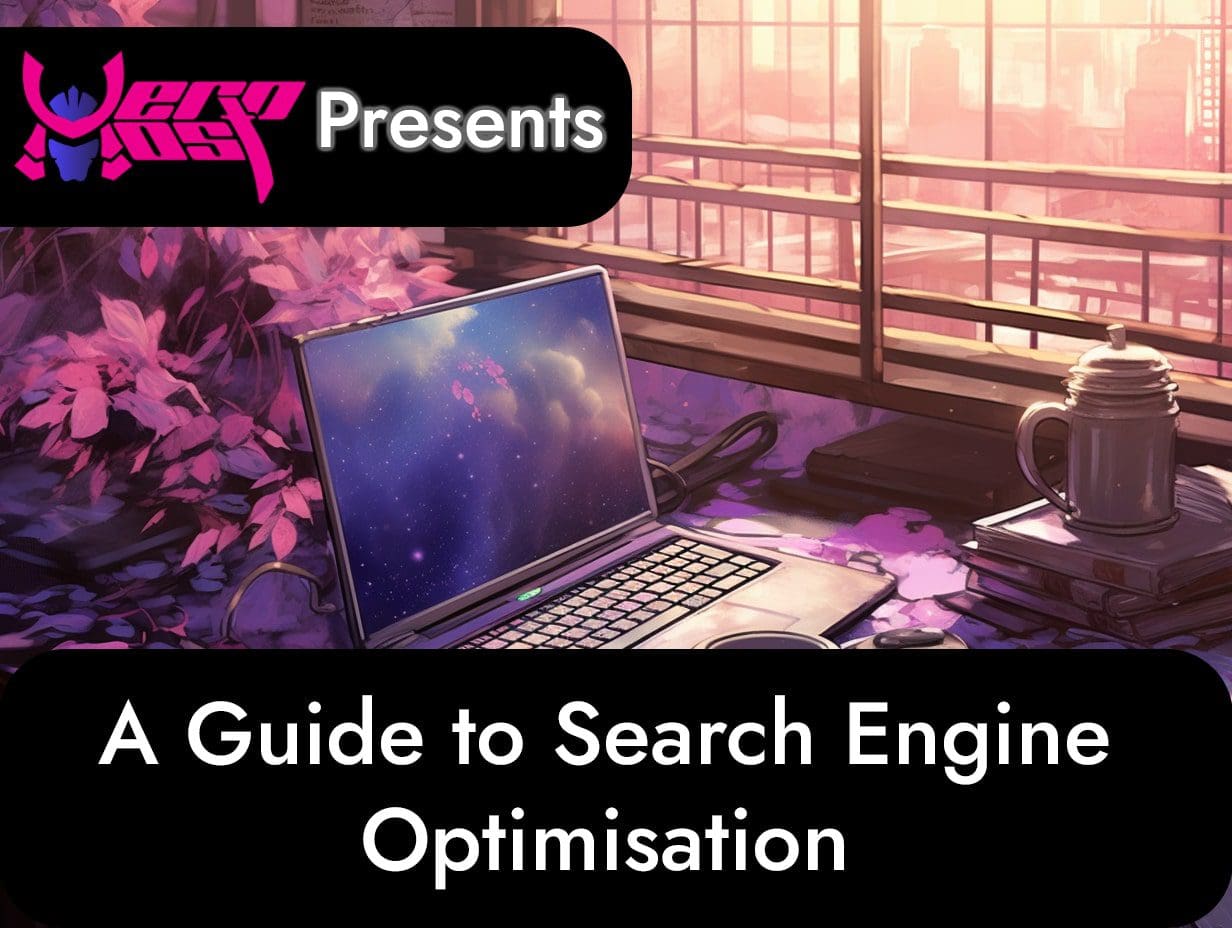A Guide to Search Engine Optimisation
- Home
- Search Engine Optimisation (SEO)
- A Guide to Search Engine Optimisation

- Mikey Ryu
- November 6, 2023
- 0
A Guide to Search Engine Optimisation
In today’s digital age, having a strong online presence is essential for businesses and individuals alike. When it comes to improving your visibility and attracting organic traffic to your website, Search Engine Optimization (SEO) is the key. In this comprehensive guide to SEO, we will delve into the fundamental principles, strategies, and best practices that will help you rank higher in search engine results pages (SERPs) and reach your target audience effectively.
Table of Contents:
- Understanding SEO: What Is It and Why Is It Important?
- On-Page SEO: Optimizing Your Website Internally
- Off-Page SEO: Building Authority and Relevance
- Technical SEO: The Foundation of a High-Performing Website
- Local SEO: Attracting Nearby Customers
- Mobile SEO: Preparing for the Mobile-First World
- Content Is King: The Role of High-Quality Content in SEO
- Keywords: The Heart of SEO Strategy
- SEO Tools: Leveraging Technology for Better Results
- Measuring SEO Success: Key Metrics and Analytics
- Staying Updated: The Ever-Changing Landscape of SEO
- Conclusion: SEO as a Path to Online Success
Understanding SEO: What Is It and Why Is It Important?
Search Engine Optimization (SEO) is the practice of optimizing your website and online content to improve your visibility in search engine results. Search engines, like Google, use complex algorithms to determine the most relevant and valuable content for a particular search query. The primary goal of SEO is to ensure your website ranks as high as possible in these search results.
SEO is crucial for various reasons:
Increased Visibility:
A high ranking in search results ensures your content is seen by a broader audience, increasing the chances of attracting potential customers or readers.
Credibility and Trust:
Websites that rank higher in search results are often perceived as more reliable and trustworthy by users.
Cost-Effective Marketing:
Organic search traffic, achieved through SEO, is cost-effective compared to paid advertising, making it a valuable long-term strategy.
Competitive Edge:
SEO helps you stand out in a crowded online marketplace, allowing you to compete effectively in your niche.
On-Page SEO: Optimising Your Website Internally
On-page SEO focuses on optimizing individual web pages to improve their search engine ranking. It involves various elements, including:
Title Tags:
Crafting compelling and keyword-rich titles for your web pages.
Meta Descriptions:
Write informative and enticing descriptions to encourage users to click on your search results.
Header Tags:
Properly structure your content with headings (H1, H2, etc.).
Keyword Optimisation:
Ensuring your content includes relevant keywords naturally.
Quality Content:
Providing valuable, well-researched, and engaging content that meets users’ needs.
Image Optimisation:
Using descriptive file names, alt tags, and image compression.
Internal Linking:
Connecting related pages within your website.
Page Speed:
Ensuring fast loading times for better user experience and SEO ranking.
Off-Page SEO: Building Authority and Relevance
Off-page SEO involves activities that take place outside your website but have a significant impact on your search engine ranking. Key off-page SEO strategies include:
Link Building:
Acquiring high-quality backlinks from reputable websites to boost your site’s authority.
Social Media Engagement:
Leveraging social media platforms to promote your content and build brand recognition.
Online Reputation Management:
Monitoring and managing your online reputation and reviews.
Guest Blogging:
Publishing content on other websites to reach new audiences and gain backlinks.
Influencer Outreach:
Collaborating with influencers to promote your content and brand.
Technical SEO: The Foundation of a High-Performing Website
Technical SEO deals with the behind-the-scenes aspects of your website that can impact its search engine ranking. This includes:
Website Speed:
Optimising your website for faster loading times.
Mobile Responsiveness:
Ensuring your site is mobile-friendly, as mobile search is now predominant.
SSL/HTTPS:
Securing your website with HTTPS for data protection and SEO benefits.
XML Sitemaps:
Creating sitemaps to help search engines understand your site’s structure.
Crawlability and Indexing:
Ensuring search engines can access and index your content.
Structured Data Markup:
Adding structured data to provide context to search engines.
Local SEO: Attracting Nearby Customers
Local SEO is crucial for businesses with a physical presence or those serving a specific geographic area. It includes:
Google My Business:
Creating and optimising your Google My Business profile for local search.
Local Keywords:
Incorporating location-specific keywords into your content.
Online Reviews:
Encouraging and managing customer reviews on platforms like Google and Yelp.
Local Citations:
Ensuring consistent and accurate business information across the web.
Mobile SEO: Preparing for the Mobile-First World
Mobile SEO is increasingly important due to the growing use of smartphones and mobile devices. Key considerations include:
Mobile-Friendly Design:
Ensuring responsive web design for optimal user experience on mobile devices.
Mobile Page Speed:
Enhancing mobile page load times for better rankings.
Mobile SEO for Apps:
Optimising mobile apps for search engines and app stores.
Content Is King: The Role of High-Quality Content in SEO
High-quality content is the backbone of successful SEO. It should be:
Informative and Valuable:
Addressing user needs and providing solutions.
Original and Engaging:
Offering unique insights and keeping users interested.
Keyword-Optimised:
Including relevant keywords naturally without keyword stuffing.
Well-structured:
Use headings, bullet points, and images for easy readability.
Regularly Updated:
Keeping content fresh and up-to-date.
Keywords: The Heart of SEO Strategy
Keywords are at the core of any SEO strategy. Research, selection, and optimization of keywords are essential. Consider:
Keyword Research Tools:
Use tools like Google Keyword Planner, SEMrush, or Ahrefs to find relevant keywords.
Long-Tail Keywords:
Targeting specific, longer phrases for niche audiences.
Keyword Placement:
Incorporating keywords strategically in your content, including titles, headers, and throughout the text.
SEO Tools: Leveraging Technology for Better Results
Various SEO tools can help streamline and enhance your SEO efforts. These tools aid in keyword research, competition analysis, and performance tracking. Popular SEO tools include:
Google Analytics:
For tracking website traffic and user behaviour.
Google Search Console:
Providing insights into how Google views your website and diagnosing issues.
SEMrush:
Offering keyword research, competitor analysis, and backlink tracking.
Ahrefs:
Known for its backlink analysis and keyword research features.
Moz:
Providing various SEO tools, including a link explorer and site audit.
Measuring SEO Success: Key Metrics and Analytics
Understanding the success of your SEO efforts requires monitoring essential metrics, including:
Organic Traffic:
Tracking the number of visitors from search engines.
Keyword Rankings:
Keep an eye on your rankings for target keywords.
Conversion Rate:
Evaluating how well your website converts visitors into customers or achieves specific goals.
Bounce Rate:
Measuring the percentage of visitors who leave your site without interacting with it.
Click-Through Rate (CTR):
Monitoring the rate at which users click on your search results.
Page Load Speed:
Assessing the time it takes for your pages to load.
Backlinks:
Tracking the quantity and quality of websites linking to yours.
These metrics provide valuable insights into the effectiveness of your SEO strategy. Regularly analyze your performance to identify areas that need improvement and adjust your tactics accordingly.
Staying Updated: The Ever-Changing Landscape of SEO
One of the most challenging aspects of SEO is its continuous evolution. Search engines, particularly Google, frequently update their algorithms, and SEO best practices shift over time. To stay ahead in the SEO game:
- Keep up with industry news and updates from search engines.
- Adapt to algorithm changes by making necessary adjustments to your SEO strategy.
- Stay engaged with the SEO community to exchange insights and strategies.
- By remaining flexible and staying informed, you can adapt to the ever-changing landscape of SEO.
12. Conclusion: SEO as a Path to Online Success
Search Engine Optimization is an invaluable tool for improving your online visibility, attracting organic traffic, and achieving your online goals. Whether you’re a business looking to reach potential customers or a content creator seeking a wider audience, mastering SEO is essential for success in the digital age.
Remember that SEO is not a one-time effort; it’s an ongoing process that requires attention to detail, continuous learning, and adaptation to the ever-evolving online environment. With the right strategies and dedication, you can harness the power of SEO to achieve your online objectives and secure a prominent place in the competitive online landscape.
As you embark on your SEO journey, keep this comprehensive guide as a reference to help you navigate the intricate world of search engine optimisation. By following the principles, strategies, and best practices outlined here, you can unlock the full potential of your online presence and reach new heights in your online endeavours. Good luck, and may your SEO efforts lead to a brighter and more successful online future!
Search
Categorys
- Branding (12)
- Business Growth Guides (3)
- Business Insights (3)
- Content Marketing (43)
- Domain Authority (19)
- Email Marketing (28)
- Google Analytics & Search Console (5)
- Hack or Not (2)
- Hero Host News (0)
- Inbound Marketing (32)
- Lessons From Asia (40)
- Marketing Guides (11)
- Martial Arts Journey (14)
- Outbound Marketing (8)
- Search Engine Optimisation (SEO) (41)
- Social Media Marketing (38)
- Web Design (20)
- Website Hosting (4)
- Wordpress (2)






